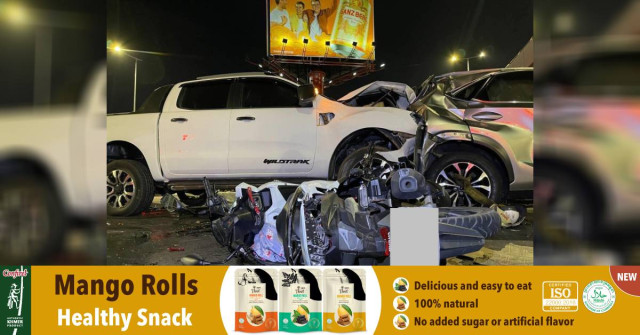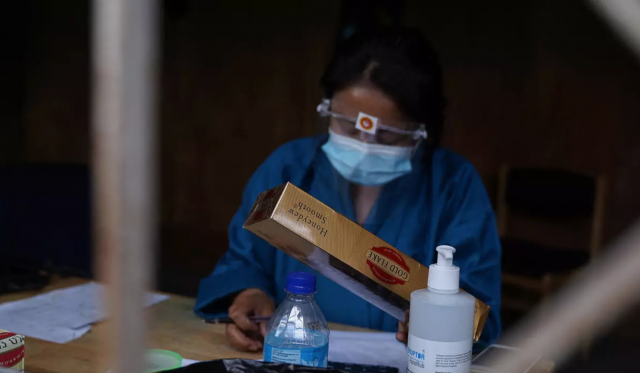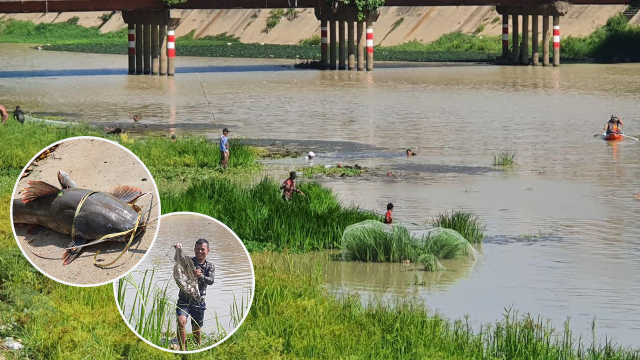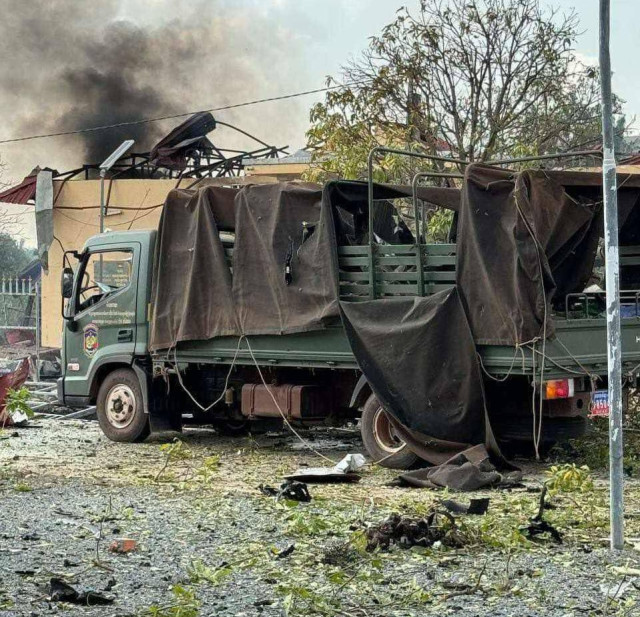Alcohol Control Law Inaction is Shameful: Observers

- By Teng Yalirozy
- January 24, 2024 8:00 PM
PHNOM PENH – Having no Alcohol Control Law is a source of shame, observers say, worrying that excess alcohol consumption has “crossed a red line.”
A public outcry about alcohol's effect has grown after a spate of traffic accidents caused by drunk drivers.
On Jan. 20, a drunk official from the Ministry of Economy and Finance hit and killed four people waiting at the traffic lights under the Russey Keo Bridge. Several others were injured. This case is under investigation.
Last December, a Jeep Overland hit and killed a man on a motorcycle in Phnom Penh’s Tuol Kork district.
The Jeep driver is the son of a well-known lawyer. The case is still under discussion as the Jeep driver’s family took out a defamation suit against the victim’s family for saying hush money had been paid. However, the victim’s family said the suit has been withdrawn.
In December 2022, a drunk man driving a Lexus hit a family and killed a two-month-old infant. Until now, the case has seen no progress. The public still questions why the driver has not been put in jail.
Social observer Yong Kim Eng, president of the People Center for Development and Peace (PDP), said the alcohol problem has crossed a red line. Innocent people lose their lives in traffic accidents caused by careless drunks while their families are living in misery with no sign of justice.
Kim Eng said the government should not address the issues case by case but take a holistic approach, having an alcohol law and policy to strictly punish the culprits and ensure justice that the victims’ families deserve.
“Ignoring the importance of passing the existing draft law is a shame,” said Kim Eng. “Why cannot Cambodia enact the law while other nearby countries, such as Vietnam and Laos have the law to control the liquor flow and consumption.”
Vietnam approved the law on the prevention and control of alcohol-related harm in 2019. The law took effect in January 2020. Laos enacted the Law on Alcoholic Control in 2014, and it came into effect in January 2015.
In May 2015, Cambodia’s Health Ministry initiated a drafted law to control alcohol use. The 11-chapter, 39-article document aims to effectively regulate alcohol sales and use, with stricter penalties to enforce this.
Nine years have passed, and the law is still a draft. Beer and liquor are widely advertised on big billboards along the streets, on social media and television. People of all ages have easy access to alcohol and some drink, chasing the rewards in the cans.
Kim Eng said that Cambodia has many ways to deal with the issue, but the question should be led to commitment and willingness. Alcohol taxes do not contribute to societal prosperity or solve the problems caused by alcohol.
“Should we continue to let Cambodia become the paradise for alcohol advertising? Policymakers need to reconsider these issues,” he said.
Health Ministry spokesperson Or Vandine could not be reached for comment.
A chronic disease in society
Many alcohol companies in Cambodia have been trying to spread the message of drinking with responsibility or no drinking and driving. But do the drinkers take responsibility when they kill people on the road? Do they not drive while drunk?
More than 1,500 people lost their lives in traffic accidents in 2023. Driving while intoxicated was a contributing factor, Interior Minister Sar Sokha said.
“Not only is driving while intoxicated a disgrace to your life, but it also has the potential to turn you into a murderer at any moment, and the law will never pardon you,” he wrote on his Facebook page.
Accidents increased by 341, or 11 percent, from the 2,976 recorded in 2022. The fatality rate declined by 7 percent from the 1,709 deaths in 2022.
Am Sam Ath, deputy director at LICADHO, said alcohol and traffic accidents are insurmountable and remain a chronic problem in society.
Advertising of beer and liquors is omnipresent. People drink beer in some TV shows, creating an image of the commonality of drinking. He added that there is no regulation to control the sale and use of beer while people under 18 can easily buy alcohol.
“Traffic accidents and overconsumption of alcohol must be addressed jointly by the citizens and the government,” said Sam Ath.
“Cambodian society is put at risk with the loss of human resources to traffic accidents. “As seen in the recent cases, the diseased were national athletes and students.”
Yong Kim Eng of PDP said the existing punishment seems to not be implemented properly. Some cases are resolved through negotiation. Other cases are suppressed due to the power of the culprits' families, while punishment is too light.
According to Article 85 of the Law on Road Traffic, intoxicated drivers causing death with alcohol levels ranging from 0.40 mg per liter or from 0.80 g per liter of blood will be sentenced to two to five years in prison. This is regardless of fines and civil damages.
“Civil compensations sometimes are delayed, and there’s no force to push the penetrators to pay on time,” said Kim Eng.
“The victims’ families may get the compensation but not the lives of their loved ones. We know it’s impossible to get one’s lost life back. So, why cause the accident?”
Am Sam Ath of LICADHO said the past culture of intervening in traffic accidents led to perpetrators escaping, causing security issues and loss of faith in the justice system and rule of law.
In many recent traffic accidents, the families of the victims have often raised the issues of injustice and compensation as compensation is not commensurate with the loss.
Therefore, the government and relevant authorities should review these issues to amend the traffic law on some articles from punishing the perpetrators to strengthening implementation of existing laws.
Kim Eng said the fleeing of culprits and suppression of the voice of the victims’ families reflects the weak rule of law in the country.
“The future of Cambodia is grim if the alcohol problem and traffic accidents are not resolved,” he said. “The law on alcohol control should be in place, the tax on alcohol should be increased while the accessibility of alcohol should be limited.
The tragedy is getting serious, amplifying the social insecurity and the cry for justice of the victims’ families.”















